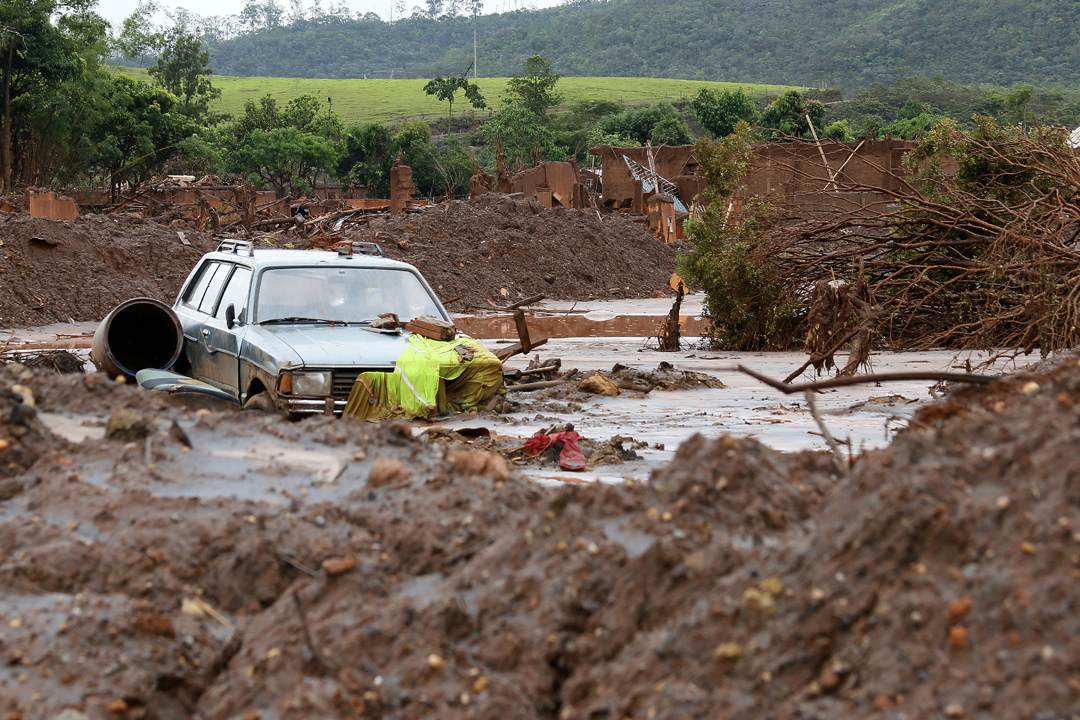Civil Society discusses responsibility of companies at the UN
United Nations Forum on Business and Human Rights wraps up its eighth edition this Wednesday in Geneva; Conectas staged panel with organizations from Latin America
 Rogério Alves/Senate TV
The collapse of mining company Samarco’s tailings dam caused a torrent of mud that
flooded numerous homes in the district of Bento Rodrigues, in the town of Mariana,
Minas Gerais (Photo: Rogério Alves/Senate TV)
Rogério Alves/Senate TV
The collapse of mining company Samarco’s tailings dam caused a torrent of mud that
flooded numerous homes in the district of Bento Rodrigues, in the town of Mariana,
Minas Gerais (Photo: Rogério Alves/Senate TV)
The collapse of the Fundão tailings dam in the town of Mariana, Minas Gerais; the
removal of indigenous peoples for oil exploration in Peru; the toxic spillage from a
copper mine in Rio Sonora, Mexico. All these cases that occurred in the past five years
share one thing in common: the violation of human rights caused by companies.
To prevent these types of crimes from happening and to ensure that victims receive
appropriate reparations, the United Nations established the Guiding Principles on
Business and Human Rights, internationally-accepted standards for business activities
to prevent serious rights violations worldwide.
Once a year, the United Nations meets to discuss the implementation of the Principles
with civil society and government representatives. The Annual Forum on Business and
Human Rights is now in its eighth edition and this year it was held from November 25-
27 in Geneva (Switzerland).
In 2011, the UN Human Rights Council established a Working Group on Business and
Human Rights to assist countries in the implementation of these Principles. Since its
creation, the group has made 12 visits to countries on four continents. The Working
Group was in Brazil in 2015, at the invitation of the federal government, to visit the
locations that were the scene of symbolic cases of violations by companies, such as
Mariana (Minas Gerais), Altamira (Pará) and Belém (Pará).
PANEL
On Wednesday, November 27, Conectas organized a panel at the event to discuss how
third sector organizations assess the implementation of the Guiding Principles on
Business and Human Rights in their countries. The event was intended to emphasize
the need for legislation requiring companies to adopt human rights due diligence to
avoid violations caused by business activities.
The panel was formed by representatives of four Latin American organizations from
countries that were visited by the UN Working Group in recent years: Jefferson
Nascimento, of Conectas; Ivette Gonzalez, of PODER (Mexico); Claudia Zúñiga Carrillo,
of DAR (Law, Environment and Natural Resources – Peru); and Jorge Ferreira, of
ADERE-MG (Alliance of Rural Employees of the state of Minas Gerais).
READ MORE
In 2018, Conectas published a document entitled Recommendations of the UN
Working Group on Business and Human Rights to Brazil, a study conducted based on
the 28 recommendations made by the Working Group to the Brazilian State and
companies following its visit to the country in December 2015.


